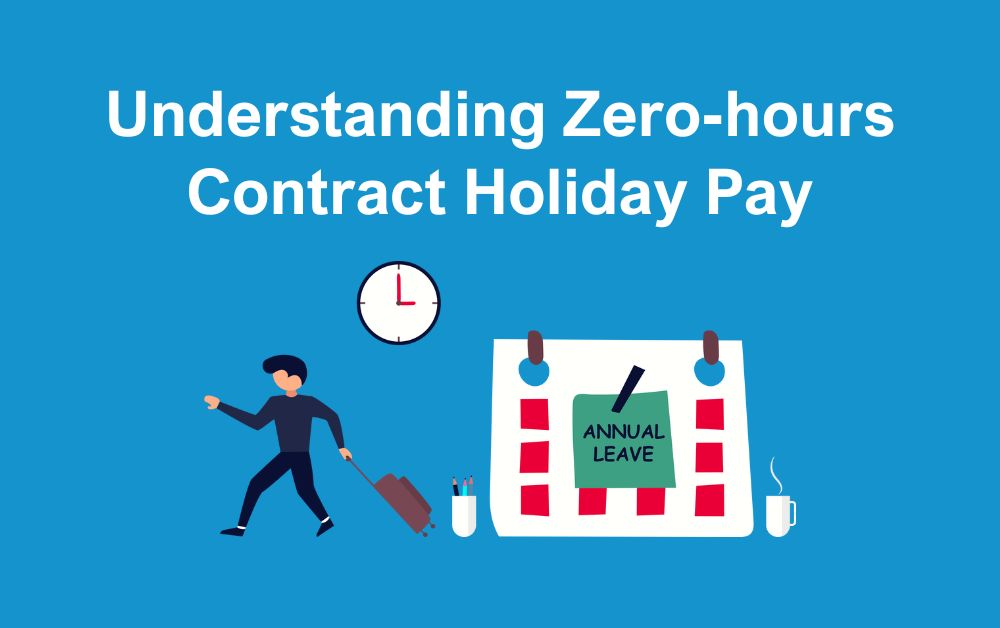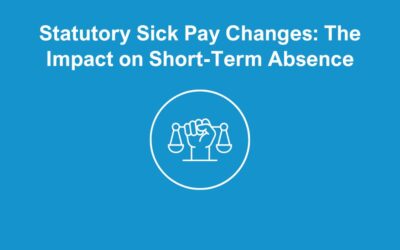According to ONS figures, as of March this year, around 1,030,000 employees in the UK are on zero-hour contracts. If you employ staff on this type of contract, it’s essential to understand and clearly outline zero-hours contract holiday pay and entitlements.
In this post, we’ll explore what holiday pay means for zero-hours workers, how it is calculated, and how to stay compliant as an employer.
Understanding Zero-Hours Contracts
A zero-hours contract is a type of employment agreement where an employer isn’t obliged to provide a minimum number of working hours. Employees are also not required to accept the work offered. This setup is widely used in sectors like hospitality, retail, and healthcare, where the demand for work may vary.
While zero-hours contracts provide flexibility, they can sometimes leave employees uncertain about their rights. This is especially particular regarding holiday pay and other entitlements.
Are Zero-Hours Workers Entitled to Holiday Pay?
Yes, zero-hours workers are entitled to holiday pay under UK law. Workers on zero-hours contracts have the same legal rights as those on other types of contracts, except when there is an interruption in their working pattern.
When a worker’s employment contract ends, they should also be paid for any outstanding leave owed to them.
How Is Holiday Pay Calculated for Zero-Hours Contracts?
All part-year and zero-hours workers are entitled to 5.6 weeks of paid leave annually. This applies regardless of how many weeks they actually work within that period. This entitlement equates to 28 days of leave for workers on a five-day work schedule.
Employees start to accrue holidays as soon as they start their employment with you. However, you don’t calculate statutory leave for zero-hours contract employees based on the number of weeks worked. This is because it’s not a fixed amount. Instead, you calculate their holiday entitlement by calculating the number of hours worked.
If a worker’s leave year began on or before 31 March 2024, this system doesn’t need to be implemented until the new leave year starts.
zero-hours holiday pay depends on:
- Their ‘pay period’ (how frequently they’re paid)
- The number of hours worked during each pay period
According to the Government website, Workers accrue 12.07% of the hours worked in a pay period as holiday entitlement. If this results in a fraction of an hour (0.5 or more), it should be rounded up to the nearest full hour.
For instance, if an employee worked 22 hours in a week, they would earn 3 hours of leave (22 x 12.07 ÷ 100 = 2.6554). This accrued leave can then be taken from the following pay period.
Zero-hours Contract Holiday Pay Calculator
Understanding how to calculate zero-hours contract holiday pay can be overwhelming. Especially when it feels like legislation changes on a regular basis. Breathe HR’s staff holiday planner and booking system provides a seamless solution for employers to manage holiday entitlement calculations accurately. This intuitive system automatically tracks and calculates leave based on individual working patterns, including for part-year, zero-hours, and irregular-hours employees.
By eliminating manual calculations, Breathe HR reduces the risk of errors. It also ensures compliance with the 5.6 weeks statutory leave entitlement and recent updates to holiday pay rules. The platform also enables employees to view and request their leave online, giving HR teams more control and visibility while saving valuable time. With clear records and easy access to entitlement information, Breathe HR’s system is an invaluable tool for maintaining accurate, compliant holiday management. A great way to calculate zero-hours contract holiday pay.
As a Gold Breathe HR Partner, we are ideally positioned to support businesses in implementing and optimising Breathe HR software. Our expertise with this powerful tool means we can help you make the most of Breathe’s features, including its efficient staff holiday planner and booking system.
Challenges and Compliance
Zero-hours contracts complexity requires careful management, especially concerning holiday pay. To remain compliant, employers should:
- Keep Accurate Records – Track all hours worked by zero-hours staff to calculate holiday accrual correctly.
- Communicate Clearly – Inform zero-hours workers of their entitlement, how it’s calculated, and how they can take their leave.
- Review Calculations Regularly – Employers should review their holiday pay approach regularly to ensure it’s fair and compliant.
The Importance of Fairness and Transparency
Zero-hours contract holiday pay isn’t just a legal requirement; it’s a matter of fairness. As the workforce grows more diverse and flexible, ensuring that all workers receive their full entitlements is crucial for fostering trust, improving retention, and enhancing company reputation. For employees on zero-hours contracts, understanding their holiday pay entitlement can empower them to take advantage of their legal rights fully.
In summary, while zero-hours contracts may present unique challenges, particularly around holiday pay, clear policies and open communication can make a significant difference. Employers who navigate these requirements thoughtfully can enjoy the benefits of a flexible workforce while upholding fair employment practices.







